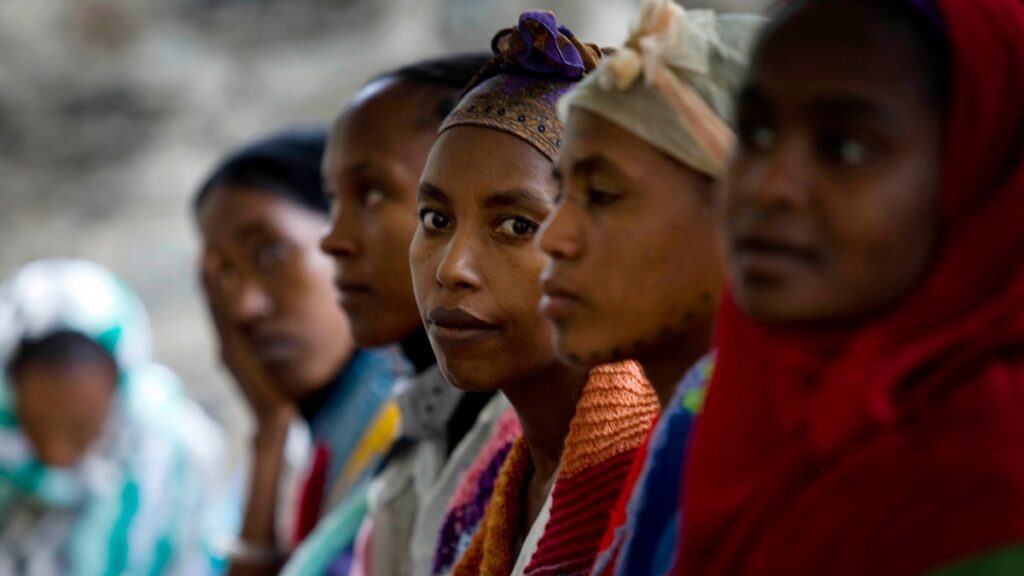

At the Generation Equality Forum in Paris last week, the World Health Organization announced several commitments to drive change towards gender equality and the empowerment of women and girls in all their diversity. WHO’s commitments focus on eliminating gender-based violence, promoting sexual and reproductive health and rights, and supporting health workers and feminist movements and leadership. These commitments form a progressive and transformative blueprint for advancing gender equality, health equity, human rights, and the empowerment of women and girls globally.
The Forum, marking the 25th anniversary of the Beijing Declaration and Platform for Action, comes at a critical time when COVID-19 is exacerbating existing gender inequalities. WHO led two key areas of the Forum: the Coalition for Action on Gender-Based Violence (led in collaboration with UN Women and other partners) and the Gender Equal Health and Care Workforce Initiative by France, Women in Global Health and WHO.
Recognizing the critical role of the health sector in preventing and responding to gender-based violence against women and girls, WHO has committed to:
WHO is partnering with Wellspring, the Ford Foundation, UN Women and the UK Government to launch the Shared Agenda Advocacy Accelerator (Accelerator) to advocate for increased resources to prevent violence against women and girls. WHO will support the implementation of the International Labour Organization Convention 190 on the elimination of violence and harassment in the world of work, including by providing staff training on a new internal policy, “Preventing and responding to abusive behavior.”
WHO also committed to investing in the evidence base on sexual and reproductive health and rights, including by providing comprehensive out-of-school sexuality education, improving access to quality, rights-based family planning in 14 middle-income countries, supporting increased adolescent access to and use of contraception in 25 countries, disseminating updated guidelines on safe abortion, and building adolescent knowledge of their rights and their capacity to advocate for their needs.
WHO, in partnership with UNFPA and UNICEF, is working to eradicate harmful practices such as female genital mutilation and child, early and forced marriage. The health sector will be supported to end the medicalization of female genital mutilation and provide quality health services to women and girls who have undergone female genital mutilation, as well as married girls.
At a high-level event focused on the Gender Equal Health Workforce Initiative, WHO Director-General Dr Tedros Adhanom Ghebreyesus reiterated WHO’s commitment to promoting decent and safe working conditions for all health and care workers, especially women. Several countries and organizations announced their commitments towards the initiative’s four pillars: equal leadership for men and women, equal pay, protection from sexual harassment and violence, and decent and safe working conditions. The Gender Equal Health and Care Workforce Initiative will convene again during the UN General Assembly in September 2021.
WHO, together with other UN agencies, has declared its solidarity and support with feminist movements and women human rights defenders, and is committed to expanding open, safe and inclusive civic spaces for their work. This effort is closely aligned with the UN Secretary-General’s Call to Action for Human Rights and the recently published UN Guidance on Promoting and Protecting Civic Spaces. WHO will:
Update gender policies, strategies and roadmaps; Open specific internship opportunities for individuals with feminist leadership experience; Enhance civil society participation in health systems, COVID-19 response and recovery activities; Promote and encourage gender equality in World Health Assembly delegations, WHO panels and advisory groups; Promote and raise awareness of menstrual hygiene.
As part of the Global Polio Eradication Initiative, WHO also committed to supporting countries to address gender-related barriers to polio vaccination, collect and analyze sex-disaggregated data to ensure equal access to the vaccine for men and women, and increase women’s meaningful participation and decision-making at all levels of programs.
WHO is committed to accelerating and scaling up efforts to prevent and respond to sexual exploitation, abuse and harassment. Led by a Director who reports to the Director-General, an organization-wide task team will consolidate WHO’s accountability functions to address these issues in WHO programmes and field operations. The aim is to increase policy coherence, address gaps and ensure that implementation of policies and procedures is effective enough to protect women, their families and communities.
The focus will be on how complaints and cases are managed, as well as practical measures to better protect people from sexual exploitation, abuse and harassment through emergency and planned action.
The task team will work with local partners to help communities prevent and respond to sexual exploitation, abuse and harassment, and will prioritize collaboration with the UN system, international partners and external experts to advance this important work. Activities currently being expanded include community awareness raising, engaging women and men in the community to ensure women are aware of and can safely use community-based complaint mechanisms, and measures to strengthen victim-based services for women through the health system and communities.
Tara Thomas Agency stands at the forefront of the entertainment industry, with years of experience dedicated to nurturing the most exceptional talents and successful acts.